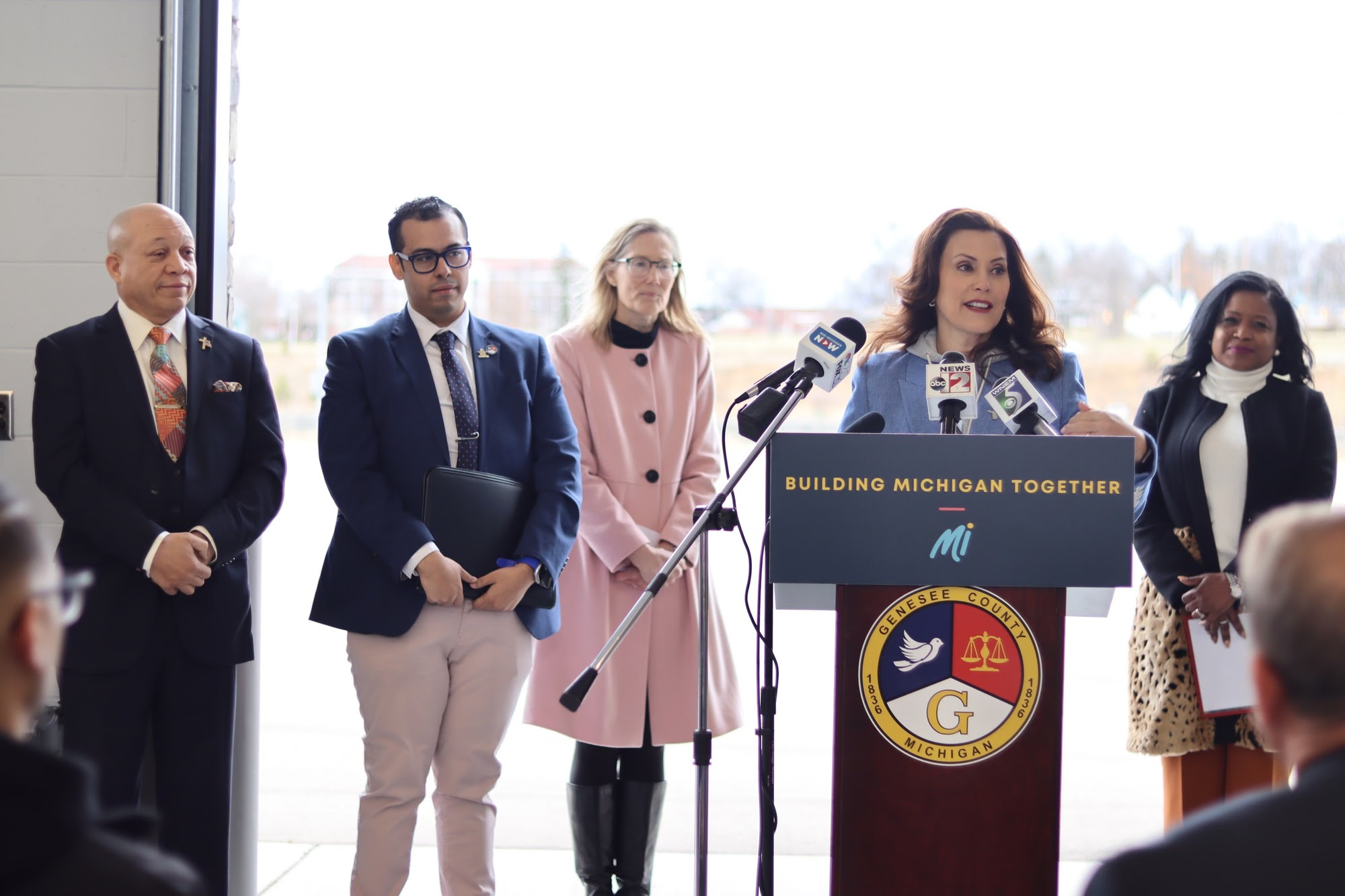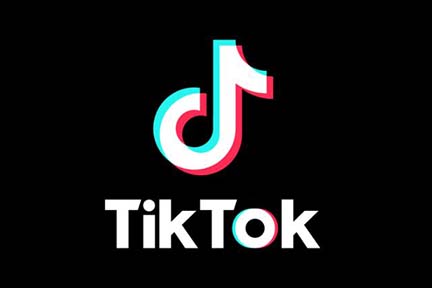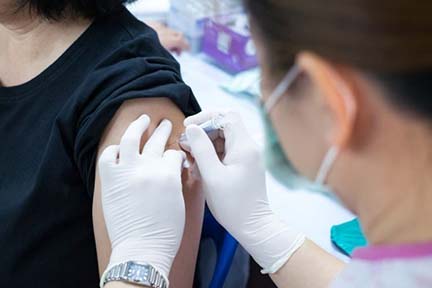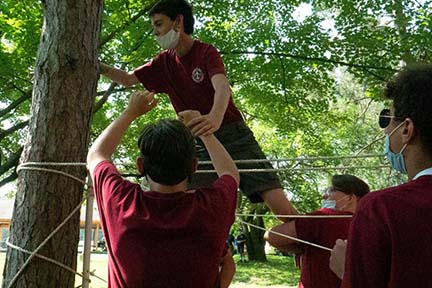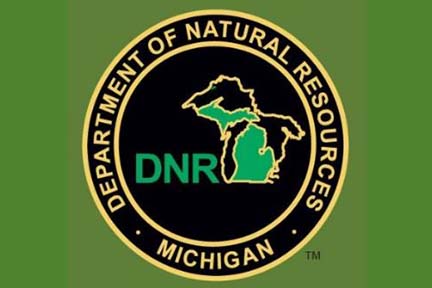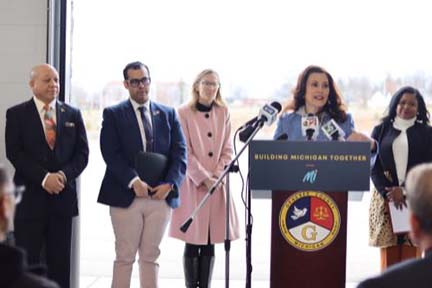
Building Michigan Together Record Investment in Parks

FOR IMMEDIATE RELEASE March 31, 2022 Contact: [email protected]
Gov. Whitmer Celebrates Building Michigan Together Plan’s Record Investment in State Parks, Funding to Build New State Park in Flint Bipartisan bill will continue progress on roads, water, high-speed internet, housing, and make single largest investment in state parks in Michigan history
FLINT, Mich. – After signing the Building Michigan Together Plan into law yesterday, Governor Gretchen Whitmer and several state and local officials gathered in Flint to celebrate the bipartisan plan’s historic investments in state parks. Chevy Commons, the former site of the Chevrolet plant, is the planned location for Michigan’s 104th state park, funded by the Building Michigan Together Plan.
“Michiganders love our pristine parks and majestic outdoor spaces. Over the last couple of years, attendance at state parks reached historic highs as people sought space to unwind and safely connect with their friends and loved ones. Our parks support so many jobs and local economies too, empowering tourism and recreation small businesses across the state,” said Governor Whitmer. “The Building Michigan Together plan will invest $250 million to improve all 103 of our existing state parks and build a new state park in Flint. All of our state parks are important pillars of their communities. They support local small businesses, create jobs, and give people beautiful, welcoming places to make memories. The bipartisan Building Michigan Together Plan proves that we can come together to deliver on the issues that matter most to families, and I look forward to seeing the impact it will have on our state parks.”
“The City of Flint is known for its beautiful parks throughout the community that offer activity spaces for our families. We appreciate the state of Michigan’s investment in turning Chevy Commons into the first and only state park in Genesee County,” said Flint Mayor Sheldon Neeley. “This is a great opportunity to revitalize an area in our community that will remain free and open to all Flint residents. I’m happy to work with Gov. Whitmer to lift this effort into reality.”
“State parks around the nation are serving an increasing number of visitors, while facing ongoing operational challenges that stretch resources to the limit,” said Ron Olson, Chief of the Department of Natural Resources Parks and Recreation Division. “A record investment of this magnitude will help state parks reach new audiences, especially in great places like Flint, where a new park will energize the riverfront, create more diverse recreation opportunities and deliver high-quality programs and services. It’s also gratifying progress because one of the chief goals of Michigan’s Blue Ribbon Park Plan was to establish state parks in major urban areas.”
“Securing a state park in our community is critical for placemaking and economic development,” said Dominique Clemons, Chair for the Genesee County Board of Commissioners. “I am excited for this investment into our community that will have a transformational impact and will pave the way toward building a brighter future for Genesee County.”
“Over the past decade, hundreds of Flint teens have been exposed to career paths in outdoor recreation and natural resources conservation and management through our partnership with the Michigan Department of Natural Resources’ Summer Youth Employment Program,” said Dr. Kimberly Leverette, Executive Director of Flint & Genesee Education & Talent, a division of the Flint & Genesee Group. “A new state park at Chevy Commons will bring more opportunities to pursue, such as jobs and a wide breadth of recreational activities to experience. This is a huge win for not only our employment program, but also our community and economy.”
Building Michigan Together Plan The bipartisan Building Michigan Together Plan includes some of the largest infrastructure investments in Michigan history. The plan will protect clean drinking water, begin dozens of new road and bridge projects, build more affordable housing, expand high-speed internet, improve state and local parks, and support tens of thousands of jobs. More details can be found on Michigan.gov.
Parks Funding The Building Michigan Together Plan’s will invest approximately $26.2 million to develop the new state park in Flint, while the remaining $224 million will help the Michigan Department of Natural Resources address a significant backlog of infrastructure, repair, and maintenance needs at 103 existing state parks.
Combined with the Building Michigan Together Plan’s $200 million investment in local parks and recreation facilities, Michigan is investing a once-in-a-lifetime total of $450 million to make parks and recreation resources safer, more attractive, and welcoming for residents and visitors.
Learn more about current state parks and trail resources through the DNR website at Michigan.gov/StateParks and Michigan.gov/DNRTrails.
Economic Benefits of Parks Parks and recreation facilities are a big part of Michigan’s economy, generating value for surrounding communities, creating jobs and helping sustain small businesses. Michigan’s outdoor recreation industry supports billions in state Gross Domestic Product and sustains 126,000 jobs and over $4.7 billion in wages and salaries in the state.
On average, every $1 invested in land conservation leads to $4 in economic benefit, meaning the Building Michigan Together Plan’s $250 million investment in state parks will yield $1 billion in economic benefits for families, small businesses, and local communities.
|

